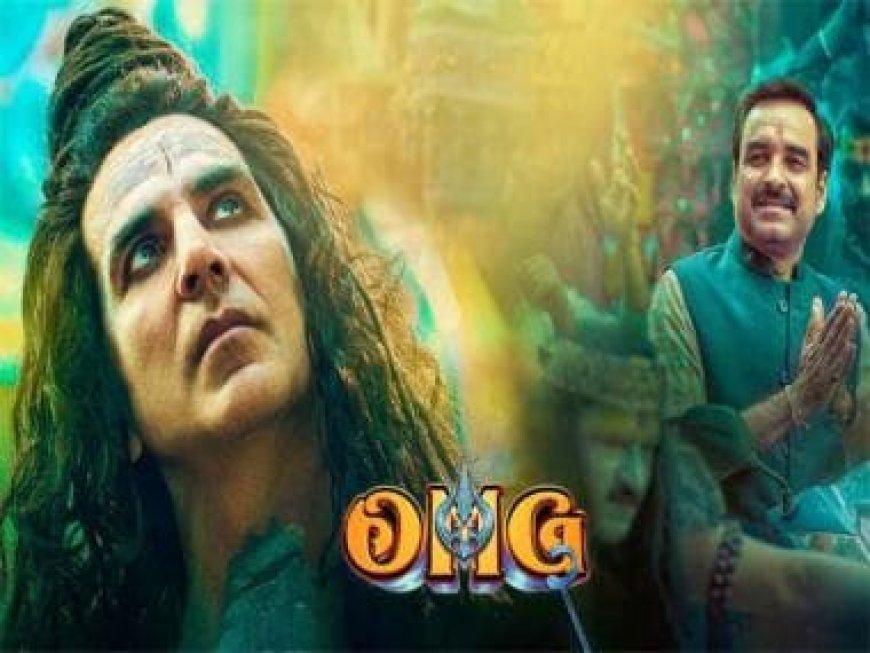How Akshay Kumar’s OMG 2 walks the tightrope of faith to universalise an important message | Explained
How Akshay Kumar’s OMG 2 walks the tightrope of faith to universalise an important message | Explained

A recurring moment in OMG 2, starring the terrific pair of Pankaj Tripathi and Akshay Kumar, is built around Kanti Sharan’s (Tripathi) rituals in court. Every time Kanti chants a loud prayer, it is met with louder echoes from an expanding courtroom. It underlines not just the roots that he stands upon but also the canopy that flanks either side of a man who represents a significant proportion of this country. This after all, is a film cradled by faith, coated by its colours, and somewhat shaped by the landscape it is also in a sense, trying to shake up. To think that the makers of OMG 2 would then have the courage and gall to explore sexuality and adolescence, in a presumptively conservative setting, allots this story the kind of wind that momentous waves are made of. In fact, it’s precisely the thing that universalises OMG 2’s sensitive, put potentially irksome, messaging.
Told from the perspective of Kanti Sharan, played exceptionally by the ever-so-likeable Pankaj Tripathi, OMG 2 navigates the tricky space of adolescent sexuality. After Kanti’s son is caught pleasuring himself in school, the public humiliation that follows, urges a humble man to don the cape of a lawyer and fight for the dignity of his child. In doing so, he not only categorises the role of the education system in grooming Indian men and women, but also that of faith in pursuing the just nature of change. While religion itself was the thorny centre of the first film, here it acts an ally of sorts, powering Sharan through battles of wit, with the sensitive urges of the heart. His exchanges with Shiva, played by Akshay Kumar, detailed as epiphanies could also simply be reflections of his own true self. Divinity resides as much in argument as it does in undebated adulation after all.
Where OMG 2 really soars is in its desire to merge rationality with faith, that elusive space of co-existence where the two borrow from the other’s magical quality. While knowledge might come from books, the film argues, the conviction to drive it towards change, might still require inspiration or intervention. While some or maybe most of us, seek this inspiration in material gain, sometimes it manifests, in different ways. Ways that most of India tries to define for itself in its own way. To some it is culmination of a folk tale, to some it’s the sustenance of an age-old myth. To some it is destiny, that irretrievable destination that action feels like the reaction to. It’s simply, inextricable from our essence of being, something that the sequel builds upon as a foundation.
In OMG 2, Kanti’s sobering dive into the annals of sexuality is never quite seen at odds with his desire to also be faithful. He pursues the former as an education and the latter as his means of endurance. Unlike most arguments between science and faith, Kanti is willing to learn one without unlearning the other. It’s what makes his profession, that of a shop owner, who also organises religious pilgrimages, all the more crucial to the film’s key provocations. How could a man of such staunch ritualistic habits, consider the seemingly vulgar? It’s a question that the film chooses to only tangentially answer, thereby supporting the idea that one could be liberal and progressive while being devout; just as much as one is believed to be without. Faith need not automatically serve as the lock that imprisons thought. Occasionally, it can also serve as the key.
Amit Rai’s film walks a tightrope that few films have attempted before. He wants to talk about sexuality from a religiously sensitive town, without addressing the conflict it can come to represent in the context of austerity. And yet he sidesteps that bogey from where there might have been no return, to assure his audience that the sight of a religious man, fighting for the liberality of his son, his sexual grooming, need not be that novel a sight. In fact, most Indian homes currently witnessing a cold war between generations, might actually be accustomed to finding that agreeable middle ground where one becomes the other, at least in essence, if not on the surface.
Mainstream filmmaking is an incredibly hard business. Though Hindi cinema has engineered itself a factory that considers social issues and taboos as packaging for light-hearted comedies, they only confront contradictions that concern neighbourhoods and not entire cities and regions. OMG 2 on the other hand is a different animal for it glides through the potentially volatile mix of sex education and faith, by exhibiting the two next to each other like easy, unassuming confidantes. There is of course the mention of ‘shiva’s ling’, of the Kamasutra and other instances where religion, undeniably overlaps with sexuality. It’s a fact that no censor board, or socially gathered critique can deny. Which is why the very thing that might make OMG 2 infuriating to some, makes it universal to most.
What's Your Reaction?

























































